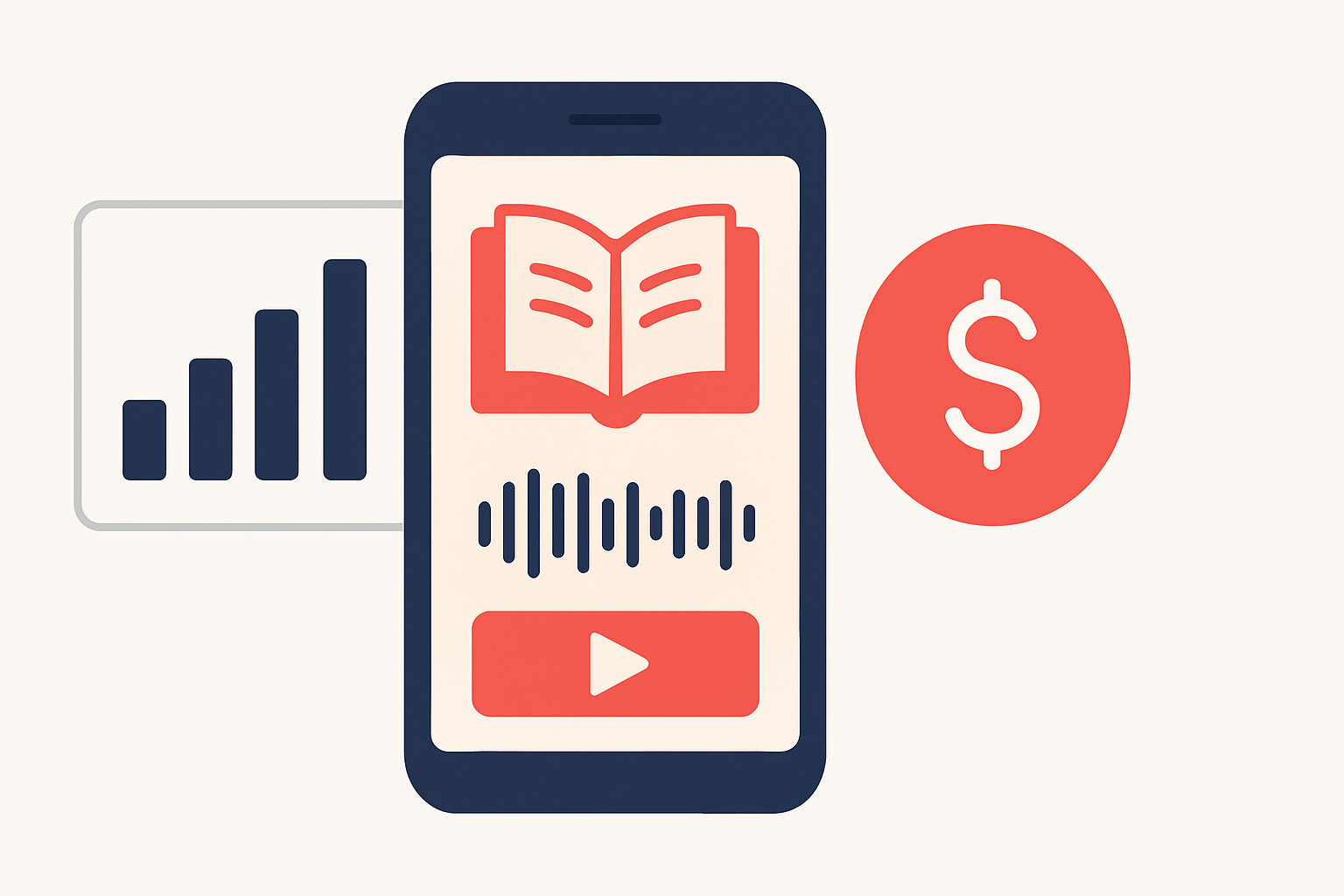Educational App Trends in the Creator Economy

Are you an educator, trainer, or content creator wondering how you can tap into the explosive growth of educational content apps? The rise of digital platforms has created new opportunities for those ready to package and deliver knowledge in more accessible formats. Audiorista is built to help creators and educators publish, distribute, and monetize their educational material through on-demand audio. This guide will break down the most important industry trends, explore revenue models, and highlight future opportunities in digital education, giving you actionable insights to succeed in this evolving space.
Industry growth and creator opportunities
Educational content apps have seen tremendous growth as demand for flexible learning options accelerates. Consumers are shifting towards mobile-first and app-based formats that make learning accessible anywhere and at any time. This change was accelerated by post-pandemic habits, where remote learning became the default for students and professionals worldwide. As learners grew accustomed to flexible education formats, the appetite for self-paced, digital-first content expanded.
These shifts are directly tied to broader educational app trends. Mobile delivery allows learners to choose exactly when and how they consume content. Traditional, rigid course structures are giving way to adaptive learning environments designed for on-demand consumption. For creators and educators, the rise of these apps signals the importance of meeting learners where they already spend their time—on devices that accommodate flexible, personalized education experiences.
The lines between traditional e-learning platforms and creator-led education have blurred. Whereas institutions once dominated the digital education landscape, individual educators and independent experts are now building audiences of their own. They no longer need to rely on large organizations to share their expertise. Instead, they are leveraging digital platforms in ways that resemble other parts of the creator economy.
This evolution means that educators are not just instructors—they're also operating as creators in their own right. They develop branded learning experiences, package insights into courses or materials, and cultivate communities around their topic areas. The creator economy has given them tools to reach students directly, offering flexibility and independence compared to institutional models. This shift has made the learning app market more diverse and more competitive, but also more open to innovation by independent professionals.
Monetization and emerging models
With the rapid expansion of digital learning, revenue models for educators and trainers have become more varied and more sustainable. From subscription-based content libraries to one-time purchase courses and membership bundles, educators have more ways than ever to monetize their expertise. By tapping into these models, trainers and educators can turn knowledge into a reliable revenue stream while giving learners value that fits their individual needs.
Platforms like Audiorista provide tools for coaches and trainers that simplify the path to monetization. Instead of navigating complex technical setups, educators can focus on the actual value they bring—knowledge, instruction, and insights—while relying on robust infrastructure to deliver, distribute, and protect their content. Flexible monetization structures also allow them to tailor offerings to different audience segments, whether that’s individuals looking for affordable micro-courses or organizations seeking scalable training solutions.
The digital learning space continues to evolve as new formats and models reshape how learners engage with education. On-demand learning has become a preferred option since it removes time barriers, allowing learners to consume content at their own pace. Micro-education, or bite-sized learning formats, is also thriving because it fits seamlessly into busy schedules and aligns well with mobile usage patterns. Meanwhile, audio-based learning has emerged as a powerful tool, especially for professionals who want to learn while commuting, exercising, or multitasking.
These changes are reshaping expectations for digital education. Learners now demand not only flexibility but also experiences tailored to their lifestyles. Educators and publishers who adapt to these preferences are better positioned to maintain relevance. Platforms like Audiorista offer solutions for digital educators that support these evolving models, empowering them to deliver on-demand audio and multi-format content that aligns with current trends.
Why audiorista matters
Amid these shifts, Audiorista stands out as a flexible, creator-focused platform designed to meet the needs of modern educators. Instead of requiring complex technical knowledge, Audiorista streamlines every stage of content delivery: from uploading and managing audio-based lessons to distributing them across digital channels and monetizing them through customizable models. This focus on simplicity ensures creators spend their time teaching and engaging learners—not managing software complexities.
Audiorista is aligned with the broader trend of educational app growth, giving educators an adaptable infrastructure that fits into today’s demand for on-demand, audio-friendly, and creator-led education. With transparent pricing and a commitment to long-term customer success, it also ensures that independent creators can confidently scale their educational businesses without unpredictability or hidden costs. In a landscape where learning apps are central to the creator economy, Audiorista offers the foundation for sustainable growth and audience ownership.
Start building and monetizing your own educational content library with Audiorista today—your all-in-one platform for digital educators, coaches, and creators.


